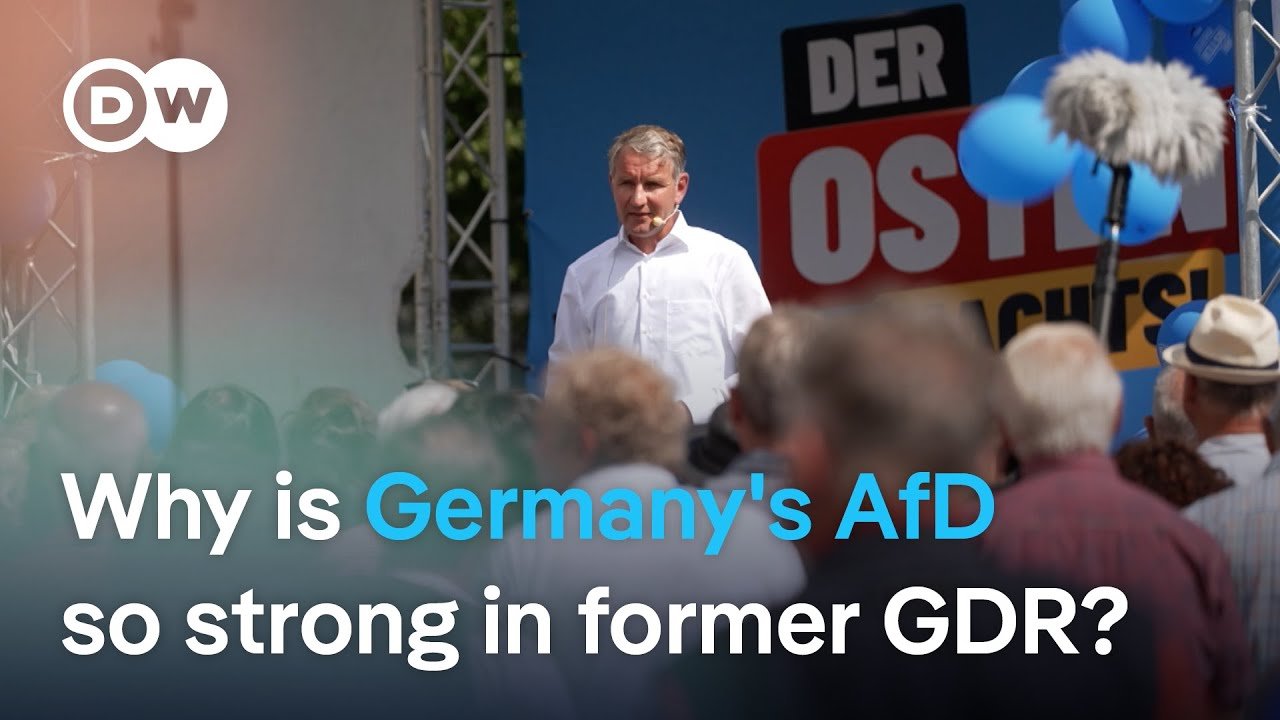- Eastern Germany is experiencing a significant surge in support for the far-right AfD party.
- The legacy of East Germany’s Communist dictatorship and feelings of being treated as second-class citizens contribute to the AfD’s popularity.
- Many in Eastern Germany feel disillusioned with politics amid global crises, fostering a sense of insecurity.
- Despite over 1 trillion EUR invested in equalizing living standards between East and West Germany, dissatisfaction remains high in the East.
- The AfD exploits an obsolete understanding of the state’s role, appealing to those disappointed by liberal democracy’s inability to solve all societal problems.
- Demographic homogeneity, economic challenges, and a less diverse society in Eastern Germany contribute to the AfD’s success.
- A new party, the Sarah Wagenknecht Connect Alliance (BSW), focusing on similar issues as the AfD, is polling well in Eastern Germany.
- The proportion of East Germans with a far-right worldview has fallen sharply, indicating that the AfD’s rise is not solely due to far-right ideologies.
- Authoritarian politics and a longing for strong leadership in uncertain times are among the explanations for the popularity of radical politicians.
- Eastern Germany lags in civil society robustness, with foundations working for the common good significantly underrepresented in the region.
- Grassroots initiatives and local associations are working to foster a more open-minded society and combat the AfD’s influence through participation and community engagement.
DW News is a global news TV program broadcast by German public state-owned international broadcaster Deutsche Welle (DW).
AllSides Media Bias Rating: Center
https://www.allsides.com/news-source/deutsche-welle-media-bias
Official website: https://www.dw.com
Original video here.
This summary has been generated by AI.

Leave a Reply